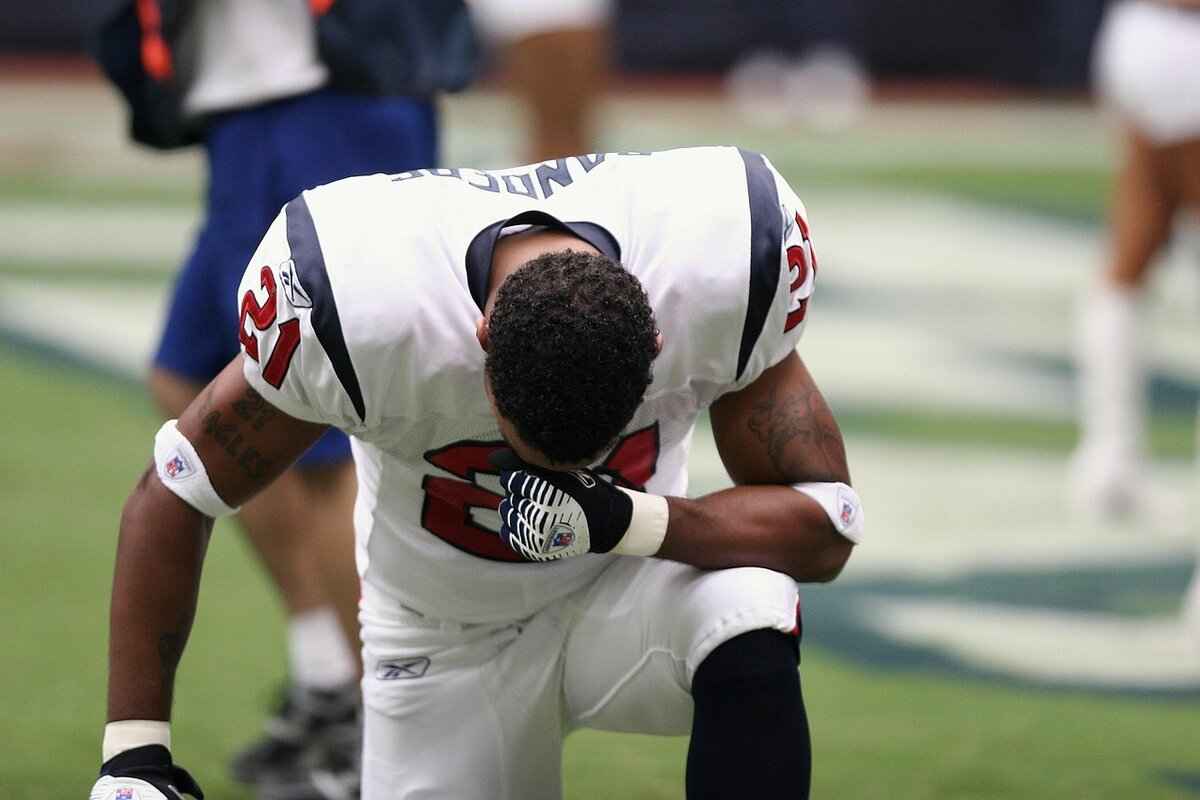This article explores the spiritual and mental practices that footballers engage in before matches, highlighting the significance of prayers and rituals in enhancing performance and focus. For many athletes, the moments leading up to a game are not just about physical preparation but also about mental and spiritual readiness. Rituals can serve as a source of comfort, helping players to channel their energies and maintain focus.
The Importance of Rituals in Sports
Rituals play a crucial role in sports psychology, helping athletes manage anxiety and improve concentration. Engaging in familiar practices can ground players, providing a sense of stability amidst the competitive chaos. By understanding the significance of these rituals, we can gain valuable insights into a footballer’s mindset before a match.
Common Prayers Among Footballers
Many footballers turn to personal prayers or religious invocations before games. These prayers often reflect individual beliefs and serve to instill confidence and a sense of purpose. For instance, a player might recite a prayer that resonates with their personal faith, seeking strength and clarity as they prepare to face their opponents.
- Christian Prayers and Rituals: Christian footballers often engage in specific prayers, such as the Lord’s Prayer, seeking divine guidance and protection before taking the field.
- Islamic Practices Before Matches: Muslim players frequently perform Salah (prayer) and recite Quranic verses, which help them maintain spiritual focus and mental clarity during competitions.
Personal Rituals and Superstitions
Beyond religious prayers, many players have personal rituals or superstitions that they believe enhance their performance. These unique practices might include specific warm-up routines, wearing lucky items, or even eating particular meals before a match. Such rituals can help players feel more in control and ready for the challenges ahead.
The Role of Team Rituals
Team rituals foster unity and camaraderie among players. Collective prayers and rituals can enhance team spirit and performance. For example, teams often gather for a pre-match huddle, where they may share motivational messages or prayers. This practice strengthens bonds and boosts morale before the game, creating a shared sense of purpose.
- Pre-Match Huddles and Prayers: Teams often gather for a pre-match huddle, where they may share motivational messages or prayers. This practice strengthens bonds and boosts morale before the game.
- Celebration Rituals Post-Match: Rituals don’t end with the match; players often engage in post-match prayers or celebrations to express gratitude or reflect on their performance.
Psychological Benefits of Praying
Engaging in prayer can provide psychological benefits, including reduced anxiety and improved focus. For athletes, prayer serves as a mental tool that can enhance performance by fostering a positive mindset. The calming effects of prayer can help players to center themselves, allowing them to concentrate on their game without distractions.
Case Studies of Notable Footballers
Examining the practices of famous footballers can provide deeper insights into the role of prayer and rituals in their careers. Many successful players openly credit their achievements to their faith and prayer practices. For instance, renowned footballers like David Beckham and Mohamed Salah have shared how their spiritual beliefs guide them on and off the pitch.
How Coaches Support Spiritual Practices
Coaches often recognize the value of spiritual practices and may encourage players to engage in rituals that enhance focus and team cohesion. By fostering an environment where players feel comfortable expressing their beliefs, coaches can help build a stronger, more unified team.
The Future of Spirituality in Football
As the sport evolves, so too does the role of spirituality in football. The increasing diversity in teams may lead to a broader acceptance and integration of various spiritual practices. This evolution could enhance not only individual performance but also team dynamics, paving the way for a more holistic approach to sports.

The Importance of Rituals in Sports
is a topic that resonates deeply within the realm of athletics. Rituals serve as a fundamental aspect of sports psychology, providing athletes with a framework to manage their emotions, particularly anxiety, and enhance their concentration before competitions. Understanding the significance of these practices can unveil the intricate workings of a footballer’s mindset prior to a match.
Rituals can be categorized into personal, team, and cultural practices. Each type serves a unique purpose, contributing to the overall performance and mental well-being of athletes. Personal rituals, often rooted in individual beliefs or superstitions, allow players to create a sense of control and predictability in an otherwise unpredictable environment. These may include specific warm-up routines, wearing lucky socks, or engaging in particular pre-game meals.
Team rituals play a crucial role in fostering unity among players. For instance, many teams engage in collective prayers or motivational huddles before matches. This practice not only strengthens team bonds but also enhances morale, allowing players to enter the field with a shared sense of purpose and determination. Such rituals can serve as a powerful reminder of the team’s collective goals, reinforcing the idea that they are not alone in their pursuit of victory.
Moreover, the cultural background of athletes significantly influences their rituals. Football, being a global sport, sees players from diverse religious backgrounds bringing their beliefs onto the field. For example, Christian footballers might recite the Lord’s Prayer, seeking divine guidance, while Muslim players often perform Salah, which helps maintain spiritual focus and mental clarity. These practices reflect the players’ commitment to their faith and serve as a source of strength during high-pressure situations.
Additionally, the psychological benefits of engaging in rituals cannot be overstated. Studies have shown that rituals can lead to reduced anxiety levels and improved focus, providing athletes with a mental toolkit to navigate the challenges of competition. By creating a structured routine, players can shift their mindset from anxiety to confidence, allowing them to perform at their best.
| Type of Ritual | Description | Benefits |
|---|---|---|
| Personal Rituals | Individual practices that players engage in before games. | Provides a sense of control and reduces anxiety. |
| Team Rituals | Collective practices that foster unity among players. | Enhances team spirit and morale. |
| Cultural Rituals | Religious or culturally significant practices before matches. | Instills confidence and a sense of purpose. |
In conclusion, the importance of rituals in sports extends far beyond mere superstition. They are deeply embedded within the psyche of athletes, offering both psychological and emotional support. As footballers continue to navigate the pressures of competition, these practices will remain a vital component of their preparation, shaping not only their performance but also their overall experience in the sport.

Common Prayers Among Footballers
In the world of football, the rituals that players engage in before stepping onto the pitch are often as critical as their physical preparations. have become a significant aspect of their pre-match routines, reflecting their personal beliefs and providing a mental boost before competition. These prayers serve not only as a source of strength but also as a means to cultivate a focused mindset.
Many footballers turn to personal prayers or religious invocations, which vary greatly depending on their cultural and spiritual backgrounds. For some, these prayers are deeply rooted in their faith, while others may adopt a more personal approach, tailored to their individual beliefs. Regardless of the form they take, these prayers often aim to instill a sense of confidence and purpose.
- Faith-Based Prayers: Many players, particularly those with strong religious convictions, engage in prayers that are specific to their faith. For instance, Christian footballers might recite the Lord’s Prayer or other biblical verses, seeking divine guidance and protection as they prepare to face their opponents.
- Islamic Practices: Muslim players often perform Salah, the ritual prayer, before matches. This practice not only helps them maintain spiritual focus but also serves as a calming influence, allowing them to clear their minds and concentrate on the game ahead.
- Personal Mantras: Apart from traditional prayers, many athletes develop personal mantras or affirmations that resonate with them. These phrases can be powerful motivators, helping players to visualize success and reinforce their determination.
In addition to individual prayers, team rituals play a crucial role in fostering unity and camaraderie among players. Pre-match huddles often include collective prayers, where teammates come together to share motivational messages and bolster each other’s spirits. This shared experience can enhance team dynamics and create a sense of belonging, which is vital for performance.
Psychologically, engaging in prayer can provide significant benefits for athletes. Studies have shown that prayer can help reduce anxiety levels and improve focus, thereby enhancing overall performance on the field. By incorporating prayer into their pre-match routines, footballers can create a mental environment conducive to success.
Notable footballers have openly attributed their success to their faith and prayer practices. Players like Tim Howard and David Villa have shared their experiences, highlighting how their beliefs have shaped their careers and contributed to their achievements. These testimonies serve as powerful reminders of the influence that spirituality can have in sports.
Coaches, recognizing the importance of these rituals, often support their players in engaging in spiritual practices. By encouraging athletes to incorporate prayer into their routines, coaches can help foster a positive mental attitude and enhance team cohesion. This support is essential in creating an environment where players can thrive, both individually and collectively.
As football continues to evolve, the role of spirituality and prayer in the sport is likely to remain significant. The intersection of faith and athletics will continue to inspire players and fans alike, highlighting the profound impact of personal beliefs on performance. In this dynamic landscape, prayers will undoubtedly remain a cherished tradition among footballers, guiding them through the challenges of the game.
Religious Influences in Football
Football is not just a game; it is a tapestry woven from countless threads of culture, tradition, and belief. The sport transcends borders, bringing together players from diverse religious backgrounds. This rich diversity influences the rituals and prayers that footballers engage in before stepping onto the pitch, shaping their mental preparation and enhancing their performance.
The intersection of religion and football is profound, with players often drawing on their faith to find strength and focus. From the fervent prayers of Christian athletes to the meditative practices of Muslim players, each faith brings unique rituals that can significantly impact a player’s mindset before a match.
For many Christian footballers, prayer is a vital component of their pre-match routine. Common practices include reciting the Lord’s Prayer or engaging in personal reflections. These rituals are not merely symbolic; they serve to instill a sense of purpose and calmness. Players like Tim Howard have openly spoken about their reliance on faith, attributing their resilience and focus to their spiritual practices.
In the Islamic faith, rituals such as Salah (prayer) hold significant importance. Muslim players often perform these prayers at designated times, even on match days. Mohamed Salah, for instance, is known for his commitment to prayer, which he credits for maintaining his composure and clarity during high-pressure situations. Additionally, reciting verses from the Quran can serve as a source of inspiration and strength.
While Christianity and Islam are the most visible influences in football, other religions also contribute to the spiritual landscape of the sport. Hindu players may engage in rituals such as offering prayers to deities or performing specific chants, while Buddhist athletes might practice mindfulness and meditation to enhance concentration and reduce anxiety. These practices highlight the universal need for spiritual grounding in the face of competition.
Apart from formal religious practices, many footballers adopt personal rituals or superstitions that they believe enhance their performance. These can range from wearing specific socks to following a particular warm-up routine. Such rituals, while not necessarily tied to religious beliefs, reflect a player’s desire for control and predictability in a highly unpredictable environment.
Team unity is crucial in football, and collective rituals can foster this bond. Pre-match huddles often involve shared prayers or motivational talks, reinforcing camaraderie among players. This collective focus not only enhances team spirit but also aligns individual intentions towards a common goal.
Engaging in prayer offers psychological benefits that can be particularly advantageous in sports. Studies have shown that prayer can reduce anxiety and improve focus, allowing players to enter matches with a clear mind. This mental clarity is essential for peak performance, making spiritual practices a valuable tool for athletes.
Numerous footballers have publicly acknowledged the role of prayer in their success. Players like Kylian Mbappé and Diego Maradona have shared their experiences, attributing their achievements to their faith and the rituals they engage in. These stories serve as powerful reminders of the profound impact that spirituality can have on an athlete’s journey.
Recognizing the importance of spirituality, many coaches encourage players to engage in rituals that promote focus and team cohesion. By fostering an environment where spiritual practices are respected and supported, coaches can help players harness the power of their beliefs to enhance performance.
As football continues to evolve, so too will the role of spirituality within the sport. The increasing recognition of mental health and well-being suggests that spiritual practices, including rituals and prayers, will remain integral to the game. This evolution reflects a broader understanding of the athlete’s experience, acknowledging that success is not solely measured by physical prowess but also by mental and spiritual fortitude.
Christian Prayers and Rituals
Christian footballers often incorporate their faith into their pre-match routines, engaging in specific prayers that serve as a source of strength and motivation. One of the most commonly recited prayers is the Lord’s Prayer, which emphasizes seeking divine guidance and protection. This ritual not only helps players focus their minds but also instills a sense of purpose as they prepare to take the field.
In the world of sports, rituals play a crucial role in enhancing performance. For many athletes, these practices are more than just superstition; they are essential for managing anxiety and improving concentration. By engaging in prayer, footballers can create a mental space that allows them to channel their energy positively. The act of praying serves as a calming mechanism, helping players to center their thoughts and alleviate pre-match nerves.
Many footballers have personal prayers that resonate with their individual beliefs. These prayers often reflect their spiritual journeys and serve as affirmations of their commitment to their faith. For instance, some players may choose to recite passages from the Bible that inspire them or offer thanks for their talents and opportunities. This personal connection to prayer can significantly enhance their confidence and sense of purpose on the pitch.
Football is a global sport, and players come from diverse religious backgrounds. The influence of faith in the lives of these athletes is profound. Christian footballers often gather for team prayers, creating a collective atmosphere of unity and support. These moments not only strengthen the team’s bond but also encourage a shared commitment to their goals. The power of communal prayer can be uplifting, fostering resilience and camaraderie among teammates.
In addition to the Lord’s Prayer, some players may engage in other Christian rituals such as making the sign of the cross before entering the field. This simple gesture serves as a reminder of their faith and an expression of gratitude for their abilities. Such practices highlight the importance of spirituality in shaping the mindset of athletes.
Moreover, the psychological benefits of prayer extend beyond the field. Engaging in spiritual practices can lead to reduced levels of stress and anxiety, allowing players to approach matches with a clear and focused mind. Research indicates that athletes who incorporate prayer into their routines often report higher levels of satisfaction and well-being, both on and off the field.
Coaches also recognize the significance of spiritual practices and may encourage players to engage in rituals that promote focus and team cohesion. By supporting these practices, coaches contribute to a holistic approach to athlete development, where mental and spiritual well-being are prioritized alongside physical training.
As the landscape of football continues to evolve, the role of spirituality is likely to remain significant. With an increasing number of players openly discussing their faith and its impact on their performance, it is clear that prayer and rituals will continue to shape the experiences of footballers worldwide. The future of spirituality in football will likely see even more integration of faith-based practices, as athletes seek to harness the power of their beliefs to enhance their game.
- Key Takeaways:
- Prayer serves as a source of strength and focus for Christian footballers.
- Rituals help manage anxiety and improve concentration.
- Team prayers foster unity and camaraderie among players.
- Spiritual practices can lead to improved psychological well-being.
Islamic Practices Before Matches
Football is not just a game of skill and strategy; it is also a profound spiritual experience for many players. Among these, Muslim footballers often engage in specific rituals that reflect their faith and commitment. One of the most significant practices is the performance of Salah, or prayer, which serves as a cornerstone of their spiritual routine before matches.
Performing Salah involves a series of physical movements and recitations that help players achieve a state of mental clarity and focus. This ritual is not merely a religious obligation; it also acts as a form of meditation, allowing players to center their thoughts and calm their nerves. The repetitive nature of the prayer, combined with the intention behind it, fosters a sense of inner peace that can be crucial in high-pressure situations like competitive football matches.
In addition to Salah, many Muslim players incorporate the recitation of Quranic verses into their pre-match routines. These verses often emphasize themes of perseverance, strength, and reliance on God, which can serve to boost confidence and instill a sense of purpose. For instance, verses that highlight the importance of patience and resilience can remind players of their capabilities, helping them to maintain focus during the game.
Moreover, the communal aspect of performing Salah can also enhance team spirit. When players come together to pray, it fosters a sense of unity and shared purpose, reinforcing the bonds among teammates. This collective ritual can serve as a powerful motivator, reminding players that they are part of something larger than themselves, which can be particularly uplifting before a critical match.
Understanding the significance of these practices offers valuable insights into the mindset of Muslim footballers. The act of praying and reciting Quranic verses is not just about spiritual fulfillment; it also plays a pivotal role in their mental preparation. By engaging in these rituals, players can alleviate anxiety and channel their energy positively, ultimately contributing to their performance on the field.
As the world of football continues to evolve, the integration of spirituality into the sport remains significant. Coaches and teams are increasingly recognizing the benefits of allowing players to engage in their spiritual practices. This acknowledgment not only respects the players’ beliefs but also enhances their mental well-being and performance.
In conclusion, the Islamic practices of Salah and Quranic recitation before matches provide Muslim footballers with a unique framework for achieving mental clarity and spiritual focus. These rituals serve as essential tools for navigating the challenges of competitive sports, reinforcing the idea that faith and performance can coexist harmoniously on the field.
Personal Rituals and Superstitions
In the world of football, where every second counts and the pressure is immense, players often turn to personal rituals and superstitions to gain an edge on the field. These unique practices, ranging from specific warm-up routines to lucky charms, serve as psychological tools that help athletes focus and enhance their performance. This section delves into the fascinating world of these individual rituals, uncovering their significance and impact on players’ mental states.
Understanding Personal Rituals
Personal rituals are often deeply ingrained in an athlete’s routine, providing a sense of control and familiarity in an otherwise unpredictable environment. Many players believe that these rituals can influence the outcome of the game. For instance, some might wear the same pair of socks for every match, while others may follow a specific sequence of actions during their pre-game warm-up. These rituals can help to reduce anxiety and create a positive mindset, allowing players to perform at their best.
- Wearing Lucky Items: Many footballers have a favorite pair of boots or a specific piece of clothing they consider lucky. The belief in the power of these items can boost confidence and create a mental advantage.
- Pre-Game Meals: Some players adhere to strict dietary rituals, consuming the same meal before each game. This consistency helps them feel physically prepared and mentally focused.
- Warm-Up Routines: A tailored warm-up routine can serve as a personal ritual. Players often follow a specific sequence of stretches or drills that they believe enhance their performance.
The Role of Superstitions
Superstitions in football are widespread and often vary from player to player. These beliefs can stem from cultural backgrounds, personal experiences, or even team traditions. For example, a player may avoid stepping on the pitch with their left foot first, believing that doing so could lead to a bad performance. Such superstitions can create a psychological barrier that, when respected, helps athletes maintain their focus and confidence.
Examples of Famous Rituals
Numerous renowned footballers have openly discussed their personal rituals and superstitions. For instance, Cristiano Ronaldo is known for his meticulous pre-match routines, which include specific warm-up exercises and dietary choices. Similarly, Lionel Messi has been noted for his preference for wearing the same undergarments during critical matches, believing it brings him luck.
Psychological Impact of Rituals
The psychological benefits of engaging in personal rituals and superstitions cannot be overstated. These practices help players manage stress and anxiety, creating a sense of normalcy in high-pressure situations. By focusing on these rituals, players can shift their attention away from external pressures and channel their energy into their performance. This mental clarity is crucial for making split-second decisions during a match.
Team Dynamics and Individual Rituals
While personal rituals are significant, they often intersect with team dynamics. Players may share their individual practices with teammates, fostering a sense of camaraderie and mutual support. Teams might even adopt collective superstitions, such as specific chants or gestures before matches, which can enhance team spirit and unity.
In conclusion, the world of personal rituals and superstitions in football is a rich tapestry of beliefs and practices that reflect the unique personalities of players. These rituals not only serve as psychological tools to enhance performance but also contribute to the overall culture of the sport. As players continue to explore and develop their individual practices, the influence of these rituals will undoubtedly remain a fascinating aspect of football.

The Role of Team Rituals
Team rituals are essential practices that foster unity and camaraderie among players. These collective actions not only enhance team spirit but also significantly impact performance on the field. This section delves into how shared rituals, including prayers and motivational gatherings, can create a stronger bond among teammates, ultimately leading to improved outcomes during competitions.
Rituals in sports serve as a psychological anchor for athletes. They create a sense of familiarity and comfort, which can be crucial in high-pressure situations. By engaging in team rituals, players can reduce anxiety and enhance their focus, allowing them to perform at their best. The collective nature of these practices reinforces the idea that every player is part of a larger whole, which can be incredibly motivating.
- Pre-Match Gatherings: Teams often come together before a match to discuss strategies, share motivational messages, or engage in group prayers. These gatherings serve to align the team’s mindset and boost morale.
- Collective Prayers: Many teams incorporate prayers into their pre-match routines. This practice not only reflects the diverse beliefs of the players but also fosters a sense of shared purpose and commitment.
- Post-Match Reflections: Rituals do not end with the final whistle. Teams often gather after matches to reflect on their performance, share gratitude, and reinforce their bonds, regardless of the match outcome.
The psychological benefits of these rituals are profound. Engaging in collective practices can lead to a heightened sense of belonging and teamwork. When players feel connected to one another, they are more likely to communicate effectively on the field, leading to better coordination during gameplay. This synergy can be the difference between winning and losing in competitive sports.
Furthermore, team rituals can serve as a source of motivation. For instance, when players come together to share their personal goals and aspirations, it creates an environment of accountability. Each player becomes invested not only in their success but also in the success of their teammates. This shared responsibility can enhance overall team performance.
In addition to enhancing focus and motivation, team rituals can also help in conflict resolution. When players engage in open discussions during rituals, they can address any underlying tensions or misunderstandings. This proactive approach to communication fosters a positive team culture, which is essential for long-term success.
Moreover, the role of coaches in facilitating these rituals cannot be overstated. Coaches often recognize the value of team bonding practices and actively encourage their implementation. By supporting these rituals, coaches help create a cohesive unit that is more resilient and adaptable during challenging moments.
As the landscape of sports continues to evolve, the importance of team rituals remains steadfast. The integration of spiritual practices, motivational gatherings, and collective reflections will likely continue to play a pivotal role in shaping team dynamics and enhancing performance. As teams strive for excellence, these rituals will serve as a powerful tool for fostering unity and achieving collective success.
Pre-Match Huddles and Prayers
In the world of football, the moments leading up to a match can be just as critical as the game itself. One of the most significant rituals that teams engage in is the pre-match huddle. This gathering serves not only as a tactical meeting but also as a sacred space for motivation, unity, and spiritual connection.
During these huddles, players often share motivational messages that resonate with the team’s goals and aspirations. These messages can range from personal anecdotes to collective affirmations that remind everyone of their shared purpose. The atmosphere is usually charged with energy, as players encourage one another to give their best on the field.
Moreover, many teams incorporate prayers into their huddles. This practice can vary significantly depending on the team’s cultural background and the personal beliefs of the players. For some, it may involve a collective prayer asking for guidance and protection, while others may take a moment of silence for reflection. This spiritual element is crucial, as it can enhance the players’ focus and mental clarity, allowing them to enter the match with a sense of purpose and calm.
The importance of these rituals cannot be overstated. Research in sports psychology suggests that engaging in collective rituals can significantly boost team morale and cohesion. When players huddle together, they are not only sharing words but also creating a bond that strengthens their resolve. This unity is essential in high-pressure situations, where the ability to rely on teammates can make all the difference.
In addition to the psychological benefits, pre-match huddles also serve a practical purpose. They provide an opportunity for coaches to reinforce strategies and tactics in a focused environment. This dual function of the huddle—both as a motivational and strategic tool—illustrates its importance in modern football.
As teams continue to evolve, the practices surrounding pre-match rituals may also adapt. However, the fundamental principles of unity and shared purpose are likely to remain at the core of these gatherings. The blend of spirituality, motivation, and strategy encapsulated in the pre-match huddle exemplifies the profound connection between mind, body, and spirit in sports.
In conclusion, the pre-match huddle is more than just a tradition; it is a powerful ritual that enhances team spirit and prepares players mentally for the challenges ahead. By fostering an environment of support and shared purpose, these huddles play a crucial role in shaping the outcomes of the matches that follow.
Celebration Rituals Post-Match
In the world of football, the connection between players and their spiritual beliefs often extends beyond the confines of the pitch and into the moments following a match. Celebration rituals post-match serve as a significant aspect of a player’s experience, providing an opportunity for reflection, gratitude, and communal bonding. These practices can vary widely among players, influenced by personal beliefs, cultural backgrounds, and team dynamics.
Expressions of Gratitude
After the final whistle, many players take a moment to engage in personal or collective prayers. This practice is not merely a routine but a profound expression of gratitude for their health, safety, and the opportunity to compete. For instance, players might kneel on the pitch, raise their hands in prayer, or gather in a circle to thank a higher power for their performance, regardless of the match outcome. Such rituals can foster a sense of peace and closure, allowing athletes to process the game and their emotions.
Reflecting on Performance
Post-match rituals also provide a crucial moment for players to reflect on their performance. This reflection can take various forms, including discussions among teammates, individual contemplation, or journaling experiences. Coaches often encourage players to analyze their performances critically, which can be enhanced by spiritual practices that promote mental clarity and focus. By integrating a spiritual dimension into their reflections, players can gain deeper insights into their strengths and areas for improvement.
Team Bonding Through Celebrations
Team celebrations are another integral part of post-match rituals. Whether celebrating a victory or processing a defeat, players often come together to share their thoughts and feelings. This collective experience strengthens team bonds and builds camaraderie. For example, teams may engage in celebratory dances, group hugs, or even light-hearted banter, reinforcing their unity and shared experiences. Such rituals create a supportive environment that can enhance team dynamics and foster resilience.
Cultural Variations in Post-Match Rituals
The cultural backgrounds of players can significantly influence their post-match rituals. For instance, players from different religious backgrounds may incorporate specific prayers or traditions into their celebrations. In some cultures, it is customary to perform a ritualistic dance or chant after a game, while others may opt for a moment of silence or reflection. Understanding these variations can provide deeper insights into the diverse tapestry of football and the significance of spirituality in the sport.
Psychological Impact of Post-Match Rituals
Engaging in post-match rituals can have profound psychological benefits. These practices help players manage their emotions, particularly after high-stakes games. By taking time to celebrate or reflect, players can mitigate feelings of disappointment or anxiety, promoting mental well-being. Research in sports psychology suggests that such rituals can enhance resilience, allowing athletes to bounce back from setbacks more effectively.
Social Media and Public Celebrations
In the digital age, many players extend their post-match celebrations to social media platforms. Sharing moments of gratitude, team bonding, or personal reflections can amplify the impact of these rituals. Players often post images or videos that showcase their celebrations, allowing fans to engage with their experiences. This connection between players and fans can enhance the emotional resonance of the rituals, creating a shared sense of community.
Conclusion
Post-match rituals are an essential part of a footballer’s journey, offering opportunities for gratitude, reflection, and team bonding. By engaging in these practices, players not only enhance their mental resilience but also strengthen their connections with teammates and fans. Whether through personal prayers, cultural traditions, or collective celebrations, these rituals play a vital role in the holistic experience of being a footballer.

Psychological Benefits of Praying
Engaging in prayer has been recognized for its profound psychological benefits, particularly for athletes who face high-pressure situations. This practice serves as a mental tool that can significantly enhance performance by reducing anxiety and improving focus. In the realm of sports, where mental fortitude is just as crucial as physical skills, understanding the psychological advantages of prayer can offer valuable insights into an athlete’s mindset.
One of the primary benefits of prayer is its ability to reduce anxiety. For athletes, the pressure to perform can be overwhelming, leading to heightened levels of stress and nervousness. Engaging in prayer allows players to shift their focus from their fears and doubts to a more centered and calm state of mind. This mental shift can help lower cortisol levels, the hormone associated with stress, thereby promoting a sense of peace and tranquility.
Moreover, prayer can enhance focus and concentration. By taking a moment to engage in prayer, athletes can clear their minds of distractions and hone in on their goals for the game. This practice encourages a state of mindfulness, allowing players to visualize their performance and mentally prepare for the challenges they will face on the field. Athletes often report feeling more centered and ready to tackle their tasks after a focused prayer session.
Additionally, prayer can foster a sense of community and belonging among team members. When athletes come together to pray, they reinforce their bonds and cultivate a shared purpose. This collective experience can enhance team spirit and camaraderie, which are essential for effective collaboration during a match. Teams that pray together often report feeling more united, which can translate into better on-field performance.
Furthermore, the act of praying can serve as a source of motivation and inspiration. Many athletes draw strength from their faith, believing that their efforts are supported by a higher power. This belief can instill a sense of confidence and determination, driving players to push through challenges and strive for excellence. The psychological boost gained from such convictions can be a game-changer in high-stakes situations.
In addition to its individual benefits, prayer can also play a role in emotional regulation. Athletes often experience a rollercoaster of emotions during competitions, from excitement to frustration. Prayer provides a healthy outlet for processing these feelings, allowing players to channel their emotions constructively. This emotional stability can lead to more consistent performance, as athletes are less likely to be swayed by momentary setbacks.
In summary, the psychological benefits of praying extend far beyond mere ritual. For athletes, engaging in prayer can significantly reduce anxiety, enhance focus, foster a sense of community, and provide emotional regulation. By incorporating prayer into their pre-game routines, footballers can harness these advantages to improve their overall performance and mental resilience.

Case Studies of Notable Footballers
Examining the practices of famous footballers can provide deeper insights into the role of prayer and rituals in their careers. Many elite athletes attribute their success not only to hard work and talent but also to their spiritual practices. This section highlights a few noteworthy examples, illustrating how prayer and rituals shape their mindset and performance.
- David Beckham: Renowned for his precision on the field, Beckham has often spoken about the calming effect of his pre-match rituals. He engages in personal prayers, seeking strength and focus. Beckham believes that these moments of reflection allow him to connect with his purpose, enhancing his performance during critical matches.
- Samuel Eto’o: The Cameroonian striker has been open about his faith, often seen making the sign of the cross before games. Eto’o attributes his resilience and success to his strong Christian beliefs, emphasizing that his prayers provide him with the confidence needed to face challenges on the pitch.
- Mohamed Salah: As a devout Muslim, Salah incorporates his faith into his routine by performing Salah (prayer) before matches. He also recites verses from the Quran, which he believes help him maintain a clear mind and spiritual focus during the game. Salah’s commitment to his faith is evident in his calm demeanor and strategic play.
- Cristiano Ronaldo: Known for his intense training regimen, Ronaldo also has a spiritual side. He often shares that he takes a moment for personal reflection and prayer before each match. This practice helps him center his thoughts, allowing him to channel his energy effectively and perform at his best.
- Messi’s Humble Approach: Lionel Messi, often regarded as one of the greatest footballers, is known for his humility. Before matches, he engages in quiet moments of prayer, expressing gratitude for his abilities and the opportunities he has. This ritual not only grounds him but also strengthens his resolve to perform for his team.
These examples illustrate that prayer and rituals are not just personal practices but integral parts of these athletes’ lives. They provide a framework for mental preparation, helping players manage the pressures of professional sports. The spiritual dimension often enhances their focus and determination, contributing to their success on the field.
Moreover, the influence of these practices extends beyond personal beliefs. Many footballers share their experiences with teammates, fostering a culture of spirituality within their teams. This collective approach can enhance team dynamics, creating a supportive environment that encourages both individual and collective growth.
In summary, the examination of notable footballers reveals that the role of prayer and rituals is significant in shaping their careers. These practices offer psychological benefits, instilling confidence and focus that are crucial in high-stakes environments. As the sport continues to evolve, the integration of spirituality will likely remain a vital aspect of the game, influencing future generations of athletes.
Players Who Attribute Success to Prayer
In the world of football, where talent and hard work are essential, many players attribute their success to a higher power. Faith and prayer serve as integral components of their journey, providing them with strength, focus, and a sense of purpose. This section delves into the experiences of notable footballers who openly acknowledge their spiritual practices as a cornerstone of their achievements.
One prominent example is Tim Howard, the former US national team goalkeeper. Howard has often spoken about how his Christian faith guides him both on and off the pitch. He has shared that before every match, he takes a moment to pray, seeking clarity and strength. This ritual not only calms his nerves but also instills a sense of confidence, allowing him to perform at his best under pressure.
Similarly, Samuel Eto’o, one of Africa’s most celebrated footballers, attributes his remarkable career to his faith in God. Eto’o has been vocal about how prayer has played a pivotal role in his life, especially during challenging times. He often shares that he prays before games, asking for protection and guidance. This connection to his spirituality has helped him maintain a positive mindset throughout his career, contributing to his success across various leagues.
Another inspiring story comes from David Luiz, the Brazilian defender known for his flamboyant playing style and charismatic personality. Luiz is known to kneel on the pitch before matches, offering a prayer of gratitude and seeking divine intervention. He believes that his faith has been a significant factor in overcoming injuries and setbacks, allowing him to return stronger than ever.
Footballers from diverse backgrounds also find strength in their beliefs. Mohamed Salah, the Egyptian superstar, openly practices his Islamic faith. Salah performs Salah (prayer) before matches, which he credits for keeping him grounded and focused. His commitment to his faith has resonated with fans worldwide, showcasing how spirituality can coexist with professional sports.
Moreover, Mesut Özil, the German midfielder, often expresses his gratitude through prayer. Özil is known for his charitable work and commitment to his faith, which he believes plays a crucial role in his performance. He has stated that prayer helps him maintain humility and perspective, reminding him of the importance of teamwork and dedication.
These players exemplify how spirituality intertwines with athletic performance. Their stories highlight that, for many, prayer is not just a ritual but a source of strength and motivation. It fosters a sense of community among players who share similar beliefs, creating bonds that extend beyond the pitch.
In addition to individual practices, team rituals involving prayer can enhance unity and morale. Many teams gather for collective prayers before matches, reinforcing a shared purpose and commitment to each other. This collective spirituality can serve as a powerful motivator, fostering a sense of belonging and camaraderie among players.
As the landscape of football continues to evolve, the role of spirituality remains significant. Players who attribute their success to prayer serve as a testament to the power of faith in navigating the challenges of professional sports. Their stories inspire not only aspiring footballers but also fans, emphasizing that while talent and hard work are crucial, a strong spiritual foundation can further enhance one’s journey.

How Coaches Support Spiritual Practices
In the world of football, the mental and spiritual dimensions of the game are becoming increasingly recognized. Coaches play a pivotal role in fostering an environment where spiritual practices are not only accepted but encouraged. This section delves into how coaches support these practices to enhance players’ focus, cohesion, and overall performance.
Understanding the significance of spiritual practices in sports can be transformative for both players and coaches. Rituals such as prayers, meditation, and mindfulness exercises can help athletes center themselves, reduce anxiety, and improve concentration. By promoting these practices, coaches can create a culture that values mental well-being alongside physical training.
Many coaches recognize that each player may have different spiritual beliefs and practices. To support this diversity, coaches often encourage players to engage in their personal rituals before matches. This could include silent meditation, reciting personal prayers, or engaging in affirmations that resonate with their individual beliefs. By allowing players to express their spirituality, coaches help to build a sense of ownership and confidence within the team.
Beyond individual practices, coaches often facilitate team rituals that promote unity and camaraderie. These rituals can range from a pre-match huddle to collective prayers or motivational talks. Such activities not only strengthen team bonds but also create a shared sense of purpose. Coaches may lead these rituals, setting a tone of focus and determination that resonates with players.
Coaches also play a crucial role in creating a supportive environment where players feel comfortable discussing their spiritual needs. This can involve open conversations about the importance of mental health and spirituality in sports. By normalizing these discussions, coaches help to remove any stigma associated with spiritual practices, allowing players to feel more comfortable sharing their experiences.
Some coaches take a proactive approach by integrating spiritual practices into training routines. This can include mindfulness exercises during warm-ups or incorporating breathing techniques to help players manage stress. By weaving spirituality into the fabric of training, coaches help players develop mental resilience and focus, which are essential for peak performance.
Numerous successful coaches have made spirituality a cornerstone of their coaching philosophy. For example, renowned football manager Jürgen Klopp has often emphasized the importance of mental well-being and team spirit. His approach includes regular team meetings where players can share their thoughts and feelings, fostering a sense of community and support.
Coaches who support spiritual practices often seek feedback from their players to adapt their methods. This could involve asking players what rituals they find helpful or how they feel about incorporating spirituality into their training. By actively listening to their players, coaches can tailor their support to meet the unique needs of the team, ensuring that spiritual practices enhance performance effectively.
In summary, coaches play an essential role in supporting spiritual practices within football teams. By encouraging individual and team rituals, creating a supportive environment, and integrating spirituality into training, coaches can significantly enhance players’ focus and cohesion. As the understanding of mental health in sports continues to evolve, the collaboration between coaches and players in fostering spirituality will likely remain a vital component of athletic success.

The Future of Spirituality in Football
As the world of football continues to evolve, the role of spirituality within the sport becomes increasingly significant. The integration of rituals and prayers not only provides players with a sense of purpose but also enhances their mental resilience and focus during high-pressure matches. This section explores how these spiritual practices may shape the future of football.
Historically, spirituality has played a pivotal role in the lives of many athletes. From pre-match prayers to post-match reflections, footballers often engage in rituals that connect them to something greater than themselves. As the sport progresses, we can expect to see a growing acceptance of these practices, reflecting a broader cultural shift towards mindfulness and mental well-being.
One of the most notable trends is the increasing diversity of spiritual expressions among players. With football being a global sport, athletes from various cultural and religious backgrounds bring their unique traditions onto the pitch. For instance, Christian players might gather for a moment of prayer, invoking divine support, while Muslim players may perform Salah before a match, reinforcing their spiritual focus. This rich tapestry of beliefs not only enhances individual player performance but also fosters a sense of unity within teams.
Moreover, the psychological benefits of engaging in spiritual practices are becoming more recognized. Research indicates that rituals can help alleviate performance anxiety and improve concentration. As teams increasingly incorporate these practices into their training regimens, we may witness a shift in how players approach the game mentally. Coaches and sports psychologists are likely to play an essential role in this transition, emphasizing the importance of mental fortitude alongside physical training.
In the coming years, we might also see a rise in the popularity of team rituals that emphasize collective spirituality. Pre-match huddles where players share affirmations or prayers can strengthen team bonds and enhance morale. Such practices not only prepare the players mentally but also create a sense of shared purpose that can be pivotal in close matches.
Furthermore, as societal attitudes toward spirituality and mental health continue to evolve, we can anticipate that football clubs will increasingly support their players’ spiritual practices. This could include offering quiet spaces for reflection, providing access to spiritual advisors, or even integrating mindfulness training into their programs. Such initiatives would not only benefit the players’ performance but also contribute to their overall well-being.
As we look to the future, it is clear that spirituality will remain an integral part of football. The rituals and prayers that players engage in may evolve, but their essence will continue to provide a foundation for personal and collective strength. Whether through individual beliefs or shared team rituals, the influence of spirituality in football is poised to grow, reflecting the sport’s deep connection to the human experience.
In conclusion, the future of spirituality in football is bright. As players and teams embrace these practices, we can expect to see a more profound impact on performance, mental health, and team dynamics. The spiritual journey of footballers is not just about the game; it is about fostering resilience, unity, and a sense of purpose that transcends the pitch.
Frequently Asked Questions
- What role do rituals play in a footballer’s performance?
Rituals help footballers manage anxiety and enhance focus. They create a sense of routine that can boost confidence and mental clarity before a match.
- Do all footballers pray before matches?
Not all footballers engage in prayer, but many do. Some rely on personal beliefs or superstitions that they feel contribute to their performance.
- How do different religions influence footballers’ rituals?
Footballers from various religious backgrounds often incorporate their faith into their pre-match routines. For example, Christian players may recite the Lord’s Prayer, while Muslim players perform Salah.
- What are some common personal rituals among players?
Many players have unique pre-game rituals, such as wearing specific socks or performing certain stretches. These personal practices help them feel prepared and focused.
- How do team rituals enhance unity?
Team rituals, like pre-match huddles and collective prayers, foster camaraderie and boost morale, creating a stronger bond among players.
- Can prayer really reduce anxiety in athletes?
Yes! Engaging in prayer can help athletes calm their nerves and improve concentration, serving as a mental tool to enhance performance.
- Are there famous footballers who credit their success to prayer?
Absolutely! Many well-known footballers openly share how their faith and prayer practices have positively impacted their careers and achievements.
- How do coaches support players’ spiritual practices?
Coaches often recognize the benefits of spiritual practices and may encourage players to engage in rituals that enhance focus and team cohesion.
- What does the future hold for spirituality in football?
As the sport evolves, the role of spirituality may continue to grow, influencing how players prepare mentally and emotionally for the game.














